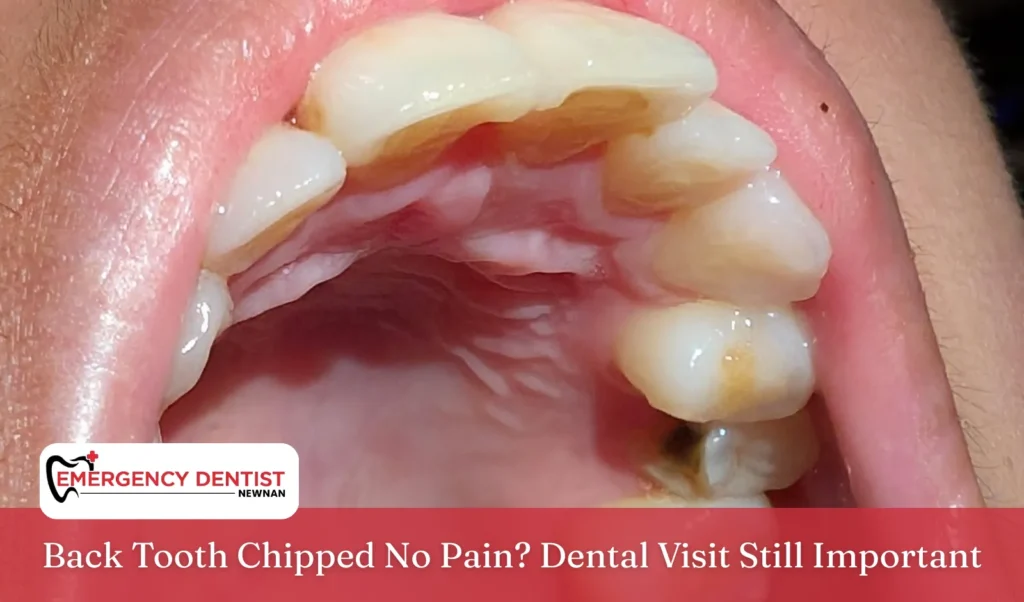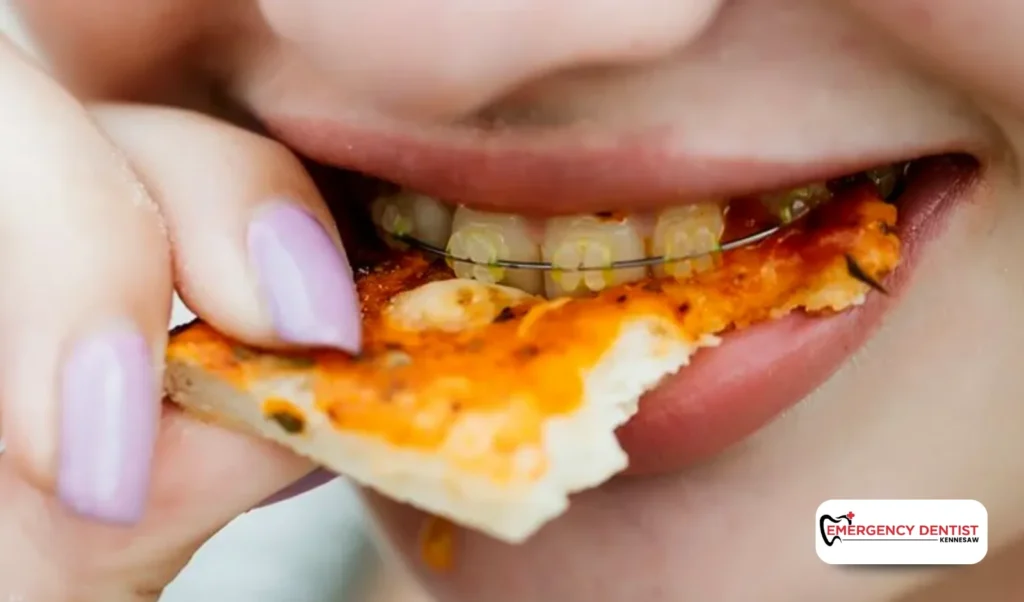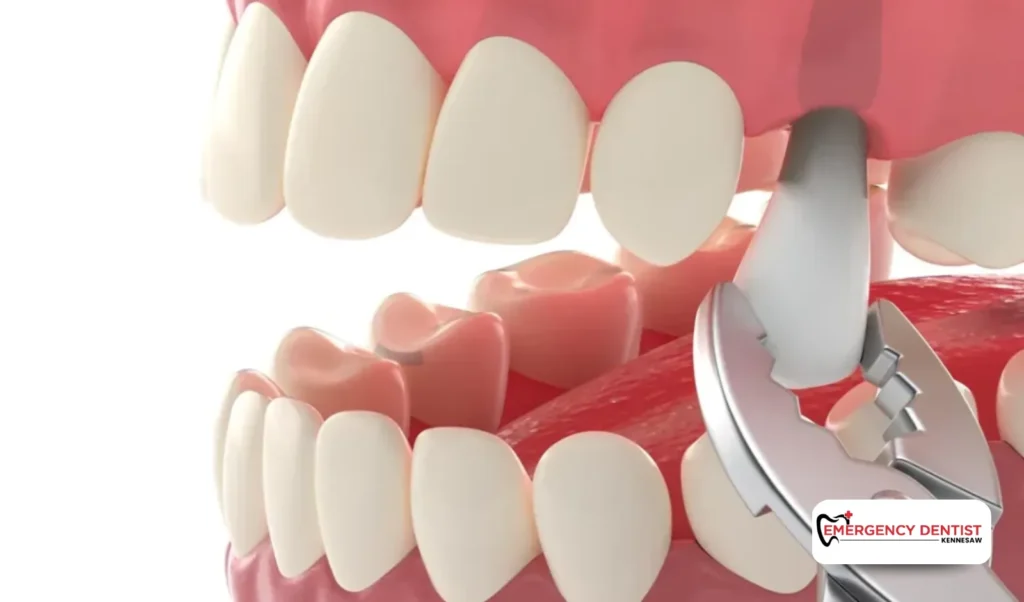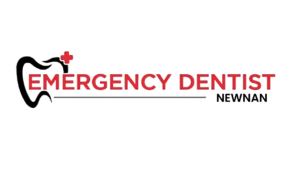Back Tooth Chipped No Pain? Dental Visit Still Important

You may be surprised to find that a part of your back tooth chipped off with no pain. Whether you felt a sudden crunch while eating or simply noticed the rough edge with your tongue, it’s easy to assume it’s not a big deal, especially without discomfort. But even if a chipped back tooth causes no pain, it can still lead to serious dental issues if not addressed promptly.
In this article, we’ll explore why you shouldn’t ignore a chipped back tooth with no pain, the common causes, potential complications, treatment options, and when to schedule an appointment with an Emergency Dentist in Newnan, GA.
Why There’s No Pain When a Back Tooth Chips
If your back tooth chipped and you’re not experiencing any tooth pain, that’s usually a sign that the damage hasn’t reached the tooth’s nerve. The enamel, the hard outer layer, doesn’t have nerve endings. That’s why small chips or cracks might not hurt at first.
However, just because you’re not in pain doesn’t mean the problem is minor. A crack or chip that affects deeper layers of the tooth can eventually expose the dentin or even the pulp, leading to pain, infection, or the need for a root canal.
What Happens If You Ignore It?
Even if you feel fine, a chipped back tooth no pain situation can still create several long-term problems. Some risks include:
- Tooth decay in the exposed areas
- Injury to your tongue or cheek from the sharp edge
- Structural weakening, increasing the chance of cracked teeth
- Infection or nerve exposure, leading to root canal treatment
- Progression of the chip or crack, requiring more extensive procedures
That’s why it’s important to schedule an appointment with an Emergency Dentist in Newnan, GA, as soon as possible.
What Causes a Chipped Back Tooth Without Pain?

You might not even know when or how the damage happened. Here are some common causes behind a back tooth chipped no pain situation:
- Chewing on hard foods like ice, nuts, or hard candy
- Grinding or clenching your teeth while you sleep (bruxism)
- Tooth decay weakening part of the tooth
- Aging or failing dental fillings
- Sports-related injuries or accidental trauma
Often, a small chip begins subtly and worsens over time, making it easier to miss until there’s noticeable damage or a change in how your tooth feels.
What to Do Immediately After Discovering a Chipped Tooth
If part of the tooth has chipped but you’re not in pain, there are still steps you should take to protect your oral health until you can see a dentist:
- Rinse with warm salt water to reduce bacteria and keep the area clean
- Avoid chewing on the affected side of your mouth
- Use sugar-free gum or dental wax to cover any sharp edge
- Take counter pain relievers if discomfort starts to develop
- Avoid extremely hot, cold, or sugary foods and drinks that can irritate the tooth
These steps can help prevent further damage until you get professional dental care.
Common Treatment Options for a Chipped Back Tooth

Your dentist will recommend treatment based on the size and severity of the chip or crack. Some options include:
For small chips or surface-level damage, dental bonding is often used. This involves applying a tooth-colored resin to fill in and smooth out the chipped area. It’s quick, cost-effective, and restores function.
If a larger portion of the tooth is missing, a dental crown may be needed to cover and protect what remains. Crowns help restore strength, prevent further cracking, and allow for normal chewing.
If the chip or crack reaches the tooth’s nerve or results in an infection, a root canal may be necessary. The dentist will remove the damaged pulp, clean the tooth, and seal it before placing a crown.
Tooth Extraction and Replacement
In severe cases where the tooth can’t be saved, extraction might be the only option. Your dentist may recommend a dental implant or bridge to replace the missing tooth and restore full function.
When to See an Emergency Dentist in Newnan
It’s important to consult with a dental professional, especially if you notice any of the following:
- The chip or crack is deep or growing
- You start to feel sensitivity to foods and drinks
- The sharp edge is cutting or irritating your mouth
- There are signs of tooth decay or infection
- You’re uncertain about the extent of the damage
A skilled Emergency Dentist in Newnan, GA can assess the condition and offer treatment to prevent further damage to your tooth and protect your overall oral health.
How to Prevent Chipped or Cracked Teeth in the Future
Preventing damage is always easier (and cheaper) than fixing it later. Consider these dental care tips:
- Don’t chew on hard foods or objects (ice, pens, hard candy)
- Wear a night guard if you grind your teeth while sleeping
- Visit your dentist regularly for checkups and cleanings
- Use a mouthguard when playing contact sports
- Cut back on acidic and sugary foods and drinks that weaken enamel
- Address small chips or sensitivity early, before they worsen
Don’t Wait, Protect Your Smile
Just because there’s no pain doesn’t mean your tooth is fine. A chipped back tooth with no pain still needs evaluation to avoid future problems. Whether it’s a minor crack or a large portion of the tooth chipped off with no pain, getting professional dental care quickly is the best way to protect your oral health and avoid more invasive treatment like a root canal.
If you’re in Newnan, GA, and suspect a chipped back tooth, even if it’s painless, schedule an appointment with a trusted Emergency Dentist. Acting early can mean the difference between a simple fix like dental bonding or needing more complex dental procedures.



